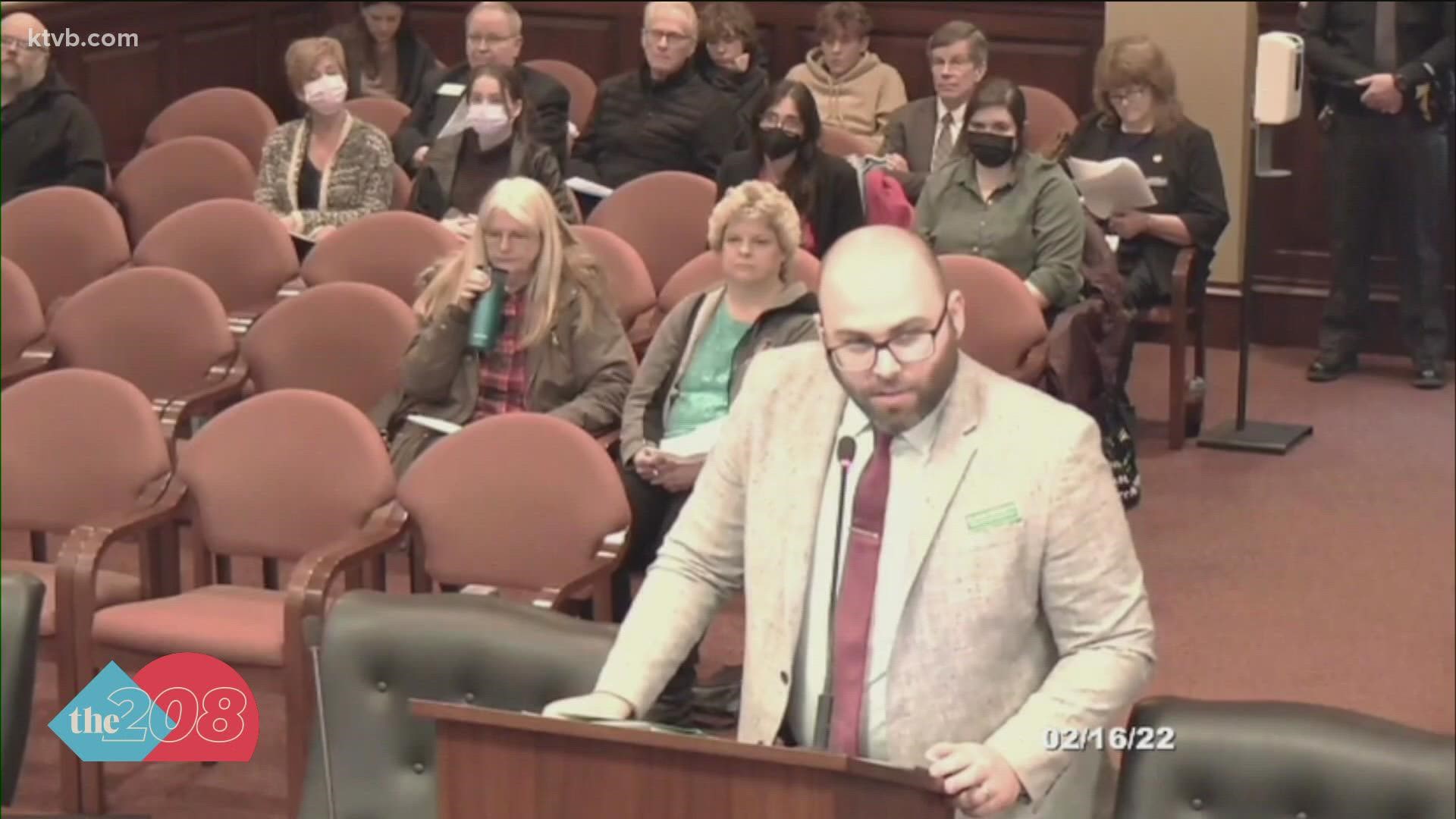BOISE, Idaho — This article originally appeared in the Idaho Press.
Legislation modeled after a Texas law and aimed at halting all abortion in Idaho after a fetal heartbeat can be detected, which is before many women know they’re pregnant, cleared a Senate committee Wednesday despite legal and constitutional concerns.
The bill, SB 1309, would authorize the father, aunt, uncle, grandparent, or sibling of a fetus aborted after that point to file a civil lawsuit against the doctor at any time up to four years after the abortion, and get $20,000 minimum damages plus attorney fees. It has no other enforcement mechanism.
Sen. Grant Burgoyne, D-Boise, read from an Idaho attorney general’s opinion he requested about the bill that found conflicts with the Idaho Constitution in the way the lawsuit-enforcement provision is set up, among other issues.
“It’s unconstitutional on its face,” said Burgoyne, an attorney. “If this passes, this Legislature will be passing a bill that is unconstitutional on its face. ... I think that the state of Idaho is in for another rough ride on ... abortion litigation, and an expensive ride, and an unconstitutional ride.”
The measure’s lead sponsor is Sen. Patti Anne Lodge, R-Huston; she has 18 co-sponsors, all Senate Republicans. Lodge deferred to Blaine Conzatti, director of the Family Policy Alliance of Idaho and the bill’s author, to present it to the Senate State Affairs Committee, which she chairs.
“When we hear that heartbeat, we know that what we are hearing is a sign of life,” Conzatti told the committee. He said the bill would add a private-lawsuit enforcement mechanism to a fetal-heartbeat abortion bill Idaho already passed last year. That bill, like SB 1309, includes a “trigger” mechanism saying it would only take effect if another such bill is upheld in another state.
Idaho also already has a “trigger” law on the books making abortion a felony, except in cases of rape or incest that’s officially been reported to the police or to save the life of the mother; it would take effect if the U.S. Supreme Court overturned its landmark 1973 Roe vs. Wade decision legalizing abortion, or the U.S. Constitution was amended to ban abortion. SB 1309 specifies that it wouldn’t interfere with that existing law.
Nearly two dozen people testified vehemently for or against the bill at a hearing that ran much of the morning Wednesday. They raised concerns from impacts on victims of domestic violence and Idaho residents’ right to determine their own medical care, to the effect of the lawsuit-driven enforcement mechanism on other constitutional rights such as gun rights or free speech, to the definition of when life begins.
Kelly Cope, speaking in favor, told the senators the bill would protect “the most vulnerable among us, the unborn.”
Mistie DelliCarpini-Tolman, Idaho state director for Planned Parenthood Alliance Advocates, speaking against, said the bill includes an “extreme provision” allowing third parties to “sue abortion providers with the promise of financial reward.”
Ken McClure, a lobbyist for the Idaho Medical Association, testified at length about legal problems his association sees in the bill, including authorizing repeated lawsuits with minimum damages over the same abortion while forbidding doctors from being awarded attorney fees if they’ve complied with the law and win the lawsuits.
Conzatti promised to bring a “trailer bill,” so called because it would “trail” or follow after SB 1309 and amend it, to fix some of those concerns. Sen. Abby Lee, R-Fruitland, asked why it wouldn’t be better to just bring a clean, new version of the bill. Conzatti said, “It seems to be the most simple way to do it.”
Lodge said she would yield to the committee’s will, and was “just looking at an expedient way to go forward.”
Sen. Mark Harris, R-Soda Springs, moved to approve the bill as-is, and Sen. Lee Heider, R-Twin Falls, seconded the motion. It carried on a voice vote.
To become law, the bill still would need to pass the full Senate, clear a House committee, pass the full House and receive the governor’s signature. It includes an emergency clause.
Conzatti told the senators that in Texas, passage of that state’s bill has meant “abortion is no longer provided in Texas after six weeks of pregnancy,” and said, “I believe we can expect similar outcomes in Idaho too.”
The attorney general's office's response to Burgoyne's request for a legal opinion, and the opinion itself, are in the window below:
This article originally appeared in the Idaho Press, read more at IdahoPress.com.
Watch more Local News:
See the latest news from around the Treasure Valley and the Gem State in our YouTube playlist:

